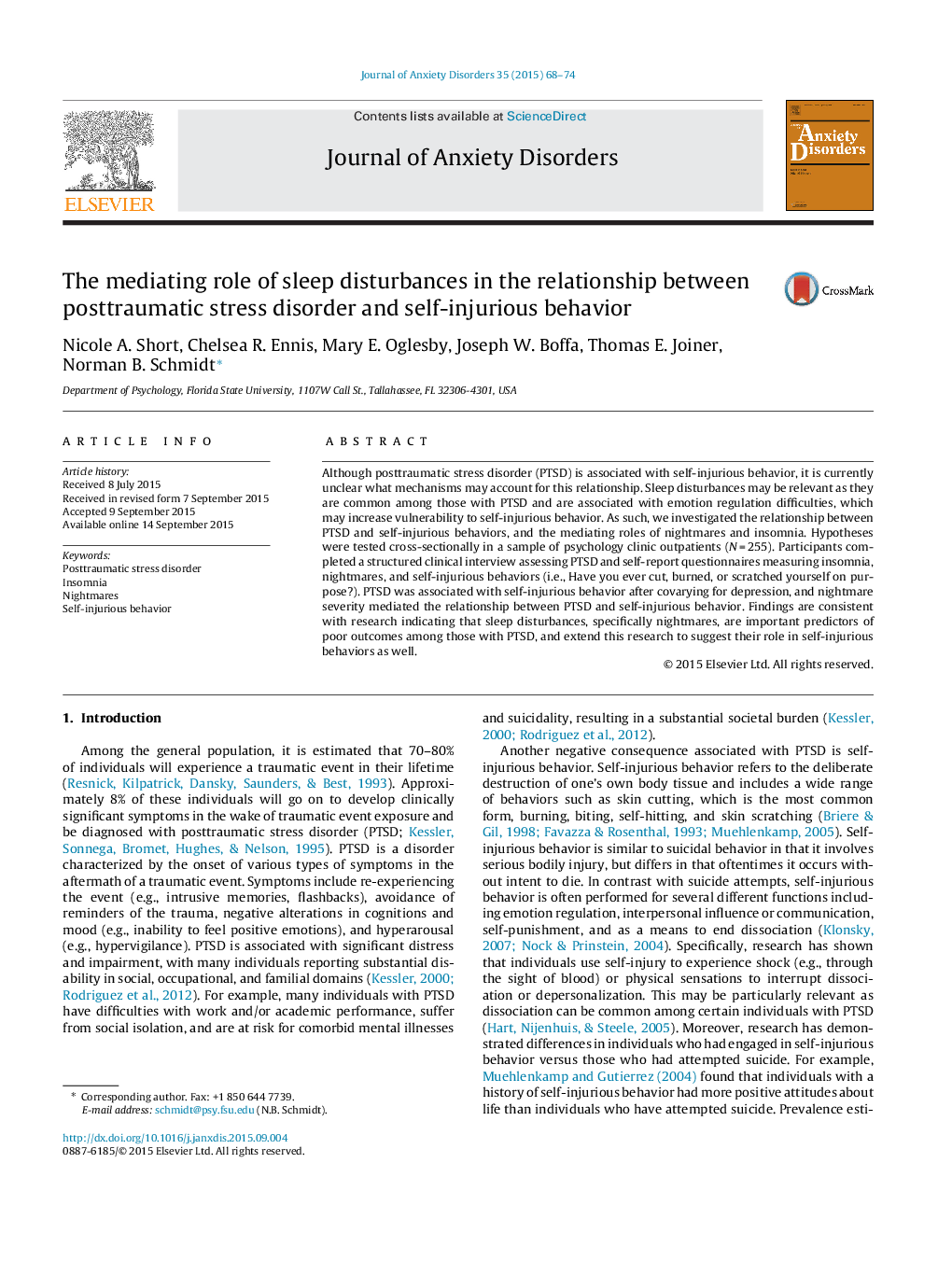| Article ID | Journal | Published Year | Pages | File Type |
|---|---|---|---|---|
| 7267316 | Journal of Anxiety Disorders | 2015 | 7 Pages |
Abstract
Although posttraumatic stress disorder (PTSD) is associated with self-injurious behavior, it is currently unclear what mechanisms may account for this relationship. Sleep disturbances may be relevant as they are common among those with PTSD and are associated with emotion regulation difficulties, which may increase vulnerability to self-injurious behavior. As such, we investigated the relationship between PTSD and self-injurious behaviors, and the mediating roles of nightmares and insomnia. Hypotheses were tested cross-sectionally in a sample of psychology clinic outpatients (NÂ =Â 255). Participants completed a structured clinical interview assessing PTSD and self-report questionnaires measuring insomnia, nightmares, and self-injurious behaviors (i.e., Have you ever cut, burned, or scratched yourself on purpose?). PTSD was associated with self-injurious behavior after covarying for depression, and nightmare severity mediated the relationship between PTSD and self-injurious behavior. Findings are consistent with research indicating that sleep disturbances, specifically nightmares, are important predictors of poor outcomes among those with PTSD, and extend this research to suggest their role in self-injurious behaviors as well.
Related Topics
Health Sciences
Medicine and Dentistry
Psychiatry and Mental Health
Authors
Nicole A. Short, Chelsea R. Ennis, Mary E. Oglesby, Joseph W. Boffa, Thomas E. Joiner, Norman B. Schmidt,
